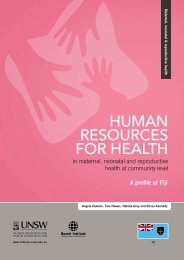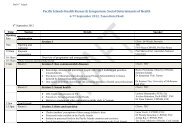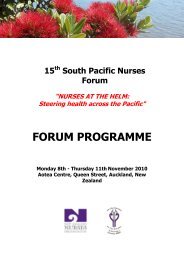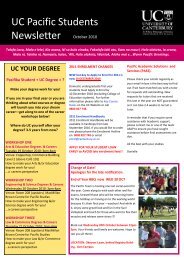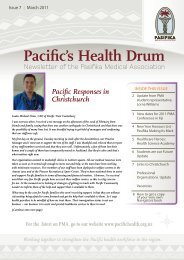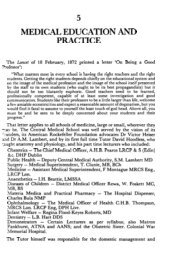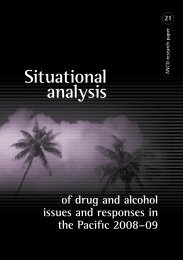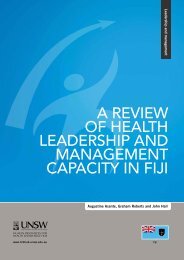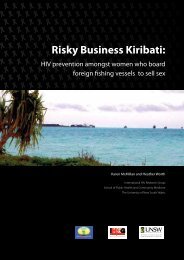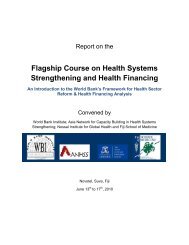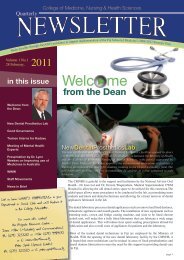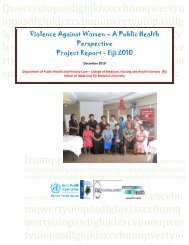rp21 situational analysis - Pacific Health Voices
rp21 situational analysis - Pacific Health Voices
rp21 situational analysis - Pacific Health Voices
You also want an ePaper? Increase the reach of your titles
YUMPU automatically turns print PDFs into web optimized ePapers that Google loves.
Situational <strong>analysis</strong> of drug and alcohol issues and responses in the <strong>Pacific</strong><br />
76<br />
5.5 Local responses<br />
Since 2003 there has been a strong focus<br />
in Kiribati on transparent and accountable<br />
government. In November 2003 Parliament<br />
repealed the Beretitenti (Immunities<br />
from Civil Proceedings) Act; this move was<br />
associated with discussion on the development<br />
of a Leadership Code in 2004. At the<br />
same time the Government focused on a<br />
number of key concerns including what was<br />
described as a culture of lawlessness and<br />
anti- establishment, particularly under-age<br />
drinking, sex-related crimes and prostitution,<br />
in addition to security problems on the<br />
outer islands. 367 One of the key strategies<br />
for responding to these issues focused on<br />
strengthening partnerships between national<br />
institutions and civil society.<br />
In 2005 a National Leadership Convention<br />
was convened in a Western conference<br />
style. 368 Among the issues considered were<br />
reforms to strengthen police services, including<br />
community engagement. Alcohol abuse<br />
was listed as a major challenge, with a call<br />
for collective community action. The impact<br />
of any progress towards this objective requires<br />
further investigation.<br />
Legislation<br />
Under the Traffic Act 2002 it is an offence to<br />
drive under the influence of alcohol or any<br />
other drug, including provisions for breath<br />
<strong>analysis</strong> and blood test procedures. 369 Penalties<br />
include fines and potential imprisonment<br />
for third and subsequent offences. The Liquor<br />
Ordinance 1973 and the Manufacture of<br />
Alcohol Act 1997 prohibit consumption of<br />
alcohol or its sale to people under the age of<br />
21 years. 370 A 2005 survey reported that the<br />
responsible organisations, the police, Island<br />
Councils and the Ministry of <strong>Health</strong> were not<br />
enforcing legal restrictions on alcohol and<br />
tobacco sales. 371<br />
The 2005 Leadership Convention called for<br />
a review of the Alcohol Ordinance to include<br />
provisions on alcohol-free zones surrounding<br />
school areas, putting a time limit of 9pm<br />
on the sale of alcohol, restricting the sale of<br />
alcoholic toddy to allocated bars and not<br />
from homes, and raising the minimum age<br />
limit for consumption to 21 years. 372 Higher<br />
taxes on alcohol and cigarettes were also<br />
advocated as well as a call for a limit on<br />
alcohol consumption at government functions.<br />
In 2006 a review of the Alcohol Ordinance<br />
was being prepared for tabling in<br />
367 M. Baaro (2006), Innovative strategies for resource mobilization, Regional Forum on Reinventing<br />
Government in the <strong>Pacific</strong>, Nadi, Fiji, 20–22 February 2006; the Beretitenti (Immunities from Civil<br />
Proceedings) Act was first passed in 1997, highlighting the significance of repealing the Act.<br />
368 This is not the traditional ‘maneaba’ meeting style which limits who can speak.<br />
369 Traffic Act 2002, ss.39–40.<br />
370 Above, fn.349.<br />
371 Ibid.<br />
372 Baaro above, fn.367.



